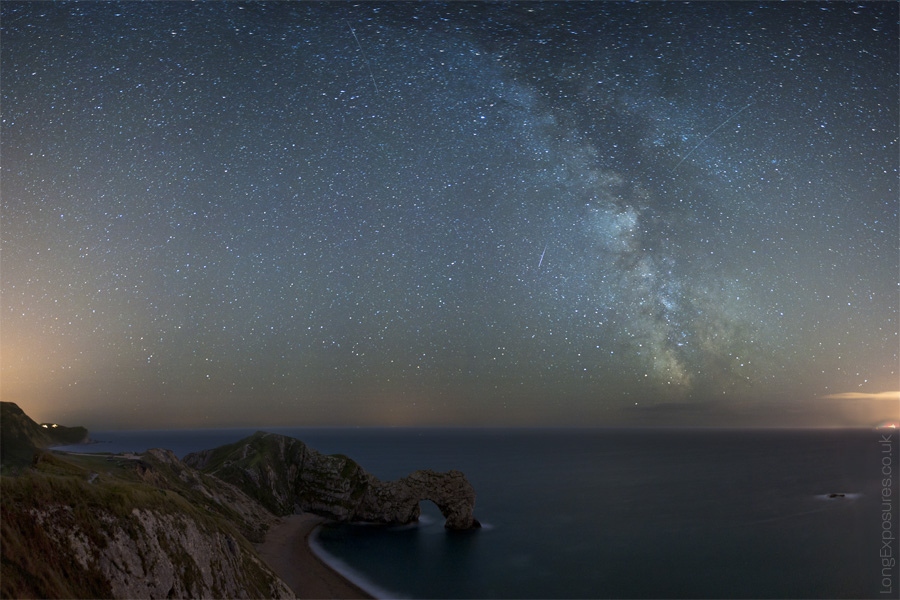What are the best FX Nikon lenses for photographing the Milky Way?
What are best FX Nikon lenses for photographing the Milky Way?
I shoot with a Nikon D800 and earn my daily bread by taking portraits, and urban wildlife (50mm 1.4, 70-200mm). Those subjects are fine I guess but are getting a little dull. I want to try out landscape photography - specifically 'nightscapes' featuring the milky way.
I'm not too keen to spend too much cash on a lens as this is a dabble. So far I'm considering the following lenses:
Nikkor 24mm 2.8D - seems to produce fine daytime landscapes, but how does it behave at night?
Nikkor 28mm 1.8G - I've heard that this is a fairly sharp lens, but is it wide enough?
Any Nikon shooters out there who are into photographing the Milky Way? If you've shot with either of these two lenses, please feel free divulge honest feedback; if not, please feel free to brag about your glass where I hope to learn from your answers.
Many thanks in advance!
Added (1). FYI: I've shot the milky way before using an entry D5100 with a basic kit lens (18-105mm). ISO was 3200, focal length: 18mm, aperture: 3.5 stops (max on that lens), exposure was 30 seconds. Camera was tripod mounted and controlled with a shutter release. I'm not really after technique tips as getting that right is fairly straightforward. Just lens advice thank you! I avoided using the term astrophotography as that genre is very broad: I'm not interested in amount of detail on specific celestial objects, rather, I'm interested in the photographic compositions including the milky way. I'm after a lens that will not display too much barrel/pin-cushion distortion when, undesirable coma, and vignetting when used at wider aperture values.
Edwin, you're answer concerns technique, and the tips you've shared here are helpful; however the exposure settings and general camera configurations are not ideal as they will lead to star trails unless I use a tracking
Added (2).… Mount (don't own one of those, don't plan to buy one).
Photographing the Milky Way is considered astrophotography.
http://www.astropix.com/HTML/I_ASTROP/TOC_AP.HTM
http://www.photographytips.com/page.cfm/5501
Photographing night landscapes requires a good tripod and lengthy exposures. I use and recommend this site for low-light exposures: http://www.calculator.org/...osure.aspx
Look at the Scene 'Landscape lit by full moon' at ISO 100:
f4.0 @ 2 minutes
f5.6 @ 4 minutes
f8.0 @ 8 minutes
f11 @ 15 minutes
Of course if you used ISO 200 then your exposure times would be cut in half.
Check your Owner's Manual for any warnings about very long exposures because sensors do heat up. There's probably a setting for long exposure noise reduction as well.
If you're curious about how accurate the site is, I used the Scene 'Distant view of city skyline or floodlit buildings' and ISO 200 for these:
100mm @ f11, exposure for 30 seconds
200mm @ f11, exposure for 30 seconds
My most commonly used lens for landscape photography is my 24mm. Regardless of when I shoot landscapes my camera is always on my tripod.
One of my Flcikr contacts does a lot of night photograhpy & has a D700 (so similar full frame to your D800).
He uses a 24mm f2.8 lens.
This is the sort of image he gets - he frequently shoots a 2 shot composite, exposing for the sky & the foreground separately.

I've used a 35mm f/1.8 on a crop frame (for just a portion, definitely not wide angle). The biggest drawback I've found is the lack of a hard infinity stop on AF-S lenses… And stopping down defeats the purpose of a fast lens.
Full frame, I'd give the 20mm AI a try. You aren't doing autofocus when shooting stars, so a good manual focus lens will give you the best bang for your buck--especially with the hard infinity stop. Unfortunately, manual 20mms are about as much as AF 20mms, between $300 and $400.
I have the fujifilm finepix s2500… It is amazing! It costs 186 dollars and has anything you could ask for! Awesome zoom!
